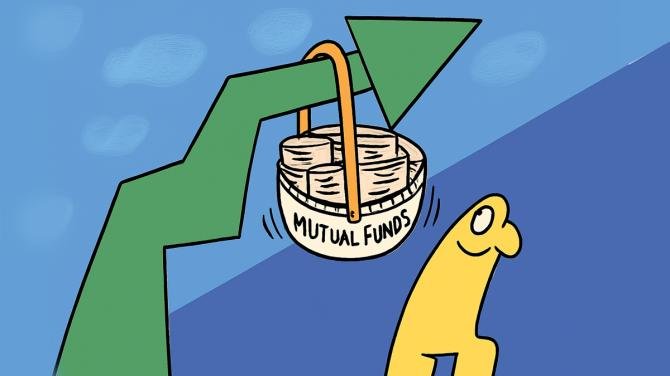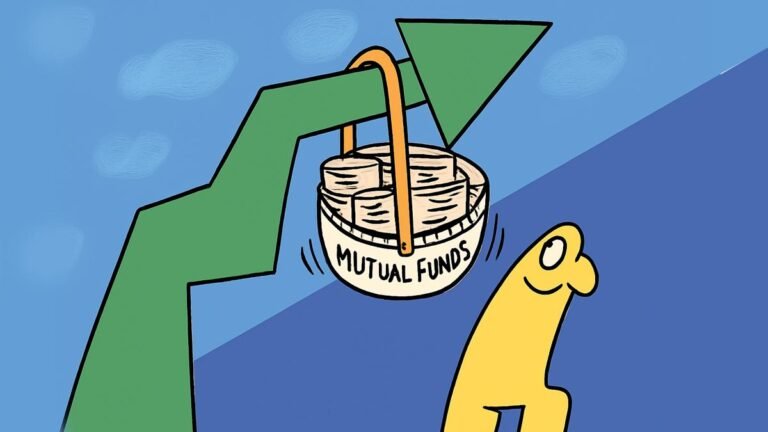‘Active funds have the ability to manage downside risk.’

Illustration: Uttam Ghosh/Rediff
Mutual fund houses have launched over 100 passive funds in 2025, far surpassing active fund launches.
Active funds can deliver alpha…
Experienced fund managers can capitalise on market opportunities.
“Fund managers can move in and out of sectors, stocks, or themes based on market opportunities,” says Abhishek Tiwari, executive director and chief business officer, PGIM India Asset Management.
Active management can be useful in falling markets.
“Active funds have the ability to manage downside risk.
“Fund managers can adjust allocations when markets are overvalued to try and reduce possible losses,” says Rajani Tandale, senior vice president-mutual fund, 1 Finance.
…but often fail to do so
Active funds may not outperform their benchmarks.
“There is no guarantee of outperformance vis-à-vis the index,” says Mohit Gang, cofounder and CEO, Moneyfront.
According to the S&P Indices Versus Active (SPIVA) India 2024 year-end scorecard, 74 to 88 per cent of funds failed to beat their respective indices over 10 years.
Strategy risk is inherent in these funds: When a manager’s decisions go wrong, or an established manager exits, returns can suffer.
Performance often fluctuates.
“A fund that performs well in one cycle may drop significantly in rankings in subsequent years,” says Tandale.
Higher expense ratios compared to passive funds can erode returns, while switching due to underperformance can trigger capital gains tax.
Some hold too many stocks.
“Instead of picking winners, they dilute returns by owning dozens of average performers,” says Soumya Sarkar, cofounder, Wealth Redefine.
Predicting outperformers over the next 7 to 10 years remains extremely difficult.
Passive funds: Simple and transparent
Passive investing is straightforward and transparent.
“These funds track a market index, which is public,” says Gang.
Sarkar notes that returns depend solely on market growth, not on a manager’s skill or luck.
A low-cost, index-matching strategy can work well over time.
“Once you invest in them, there’s no need to worry about underperformance or manager changes. Just stay invested,” he says.
Globally, passive investing dominates. In the US, over 51 per cent of mutual fund and exchange-traded fund (ETF) assets are in index-based strategies.
“In India, passive assets under management (AUM) have risen from 7 per cent to nearly 17 per cent of the industry in five years,” says Tandale.
Beware high tracking error
Passive funds cannot generate alpha. Tracking error can cause deviation from the index, which may compound over time.
Tandale says they offer no downside protection: These funds fall in tandem with the market.
“Even if a stock is overvalued and dominates the index, a passive fund has no option but to go blindly overweight on it.
“Investors are also stuck with flaws in the index’s composition, like over-reliance on a sector (such as tech in the case of NASDAQ),” says Sarkar.
What you should do?
Retail investors should make passive funds the core of their portfolio for steady, long-term growth.
“The core should ideally constitute the bulk of their portfolio. They can hold active funds in the smaller, satellite portion in anticipation of generating alpha,” says Deepesh Raghaw, Sebi-registered investment advisor.
How to Select a Passive Fund?
- Prioritise a low tracking error, ideally below 1 per cent.
- Select funds with low expense ratios (0.1%-0.3% ideal for index funds/ETFs).
- Evaluate the reputation of the fund house in index replication.
- For ETFs, review average daily trading volumes (₹5 crore or more).
- Avoid thematic or sectoral indices.
Disclaimer: This article is meant for information purposes only. This article and information do not constitute a distribution, an endorsement, an investment advice, an offer to buy or sell or the solicitation of an offer to buy or sell any securities/schemes or any other financial products/investment products mentioned in this article to influence the opinion or behaviour of the investors/recipients.
Any use of the information/any investment and investment related decisions of the investors/recipients are at their sole discretion and risk. Any advice herein is made on a general basis and does not take into account the specific investment objectives of the specific person or group of persons. Opinions expressed herein are subject to change without notice.
Feature Presentation: Ashish Narsale/Rediff

